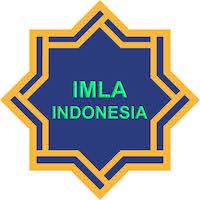Arabic Language Skills Development Through The Application Of Language Disciplines In Modern Islamic Boarding Schools/ تطوير مهارات اللغة العربية وجعلها نظاما للتواصل في المعهد الإسلامي العصري
DOI:
https://doi.org/10.18592/jams.v9i2.6857Keywords:
arabic, education, languageAbstract
The study was conducted in order to describe the students’ Arabic language skills development process at Pondok Modern (Modern Islamic Boarding School) An-Najah, South Kalimantan. Arabic language skills at PM An-Najah are developed by applying the language discipline method. This process combines the provision of material in the classroom and the application of language discipline in both of the classroom and the dormitory environment. One of the competency standards for graduates of PM An-Najah is that students are capable to demonstrate Arabic language skills, such as istima (listening), kalam (speaking), qira'ah (reading) and kitabah (writing), at the intermediate level. This research was conducted by means of qualitative methods with field research as the specification. The data were collected through interviews, observations and documentation studies, and then were analyzed and presented descriptively. The result of the study indicated that: (1) the process of applying language discipline was carried out through several stages, namely (a) language programs planning, (b) socialization, (c) habituation, (d) adaptation, (e) raising awareness, and (f) mastery of language skills; (2) the determining factors for the development of students' language skills include (a) system and environment, (b) educators, (c) discipline, and (d) the students themselves; and (3) the supporting factors for the development of students' language skills consist of (a) direction and guidance, (b) cooperation, and (c) infrastructure.References
Ahmadi, Maswan, dan Kurnia Istita’ah, Nur Rohmah Sholihah, Zakiyah Arifah. “Penggerakkan Program Bahasa Arab Di Pondok Pesantren Modern.” Arabi: Journal Of Arabic Studies Vol 3 (2018).
Athiyah Al-Abrâsyi, M. Dasar-Dasar Pokok Pendidikan Islam, Diterjemahkan Oleh Bustami, A.Gani Dan Djohar Bahry. Jakarta: Bulan Bintang, 1993.
Chomsky, Noam. Aspect Of The Theory Of Syntax. Cambridge, Massachusett: Mit Press, 1965.
D. Gunarsa, Singgih. Psikologi Untuk Membimbing. Jakarta: Pt Bpk Gunung Mulia, 1995.
Durkheim, Emile. Pendidikan Moral: Suatu Studi Teori Dan Aplikasi Sosiologi Pendidikan. Jakarta: Erlangga, 1990.
Habibi Syahid, Ahmad. “‘Bahasa Arab Sebagai Bahasa Kedua(Kajian Teoretis Pemerolehan Bahasa Arab Pada Siswa Non-Native).’” Arabiyât : Jurnal Pendidikan Bahasa Arab dan Kebahasaaraban Vol.2 (2015): 86–97.
Hakim Abdullah, Abdul, AB Aziz Sulaiman, dan Wan Ismail Wan Abdullah. “Faktor-Faktor Yang Mempengaruhi Motivasi Terhadap Pembelajaran Bahasa Arab.” Jurnal Islam Dan Masyarakat Kontemporari Universiti Sultan Zainal Abidin, 2015.
Hendri, Muspika. “Pembelajaran Keterampilan Berbicara Bahasa Arab Melalui Pendekatan Komunkatif.” Potensia: Jurnal Kependidikan Islam Vol. 3 No. 2 (2017).
Ihsan, M. “Perilaku Berbahasa Di Pondok Pesantren Adlaniyah Kabupaten Pasaman Barat.” Jurnal Wacana Etnik Vol 2 No. 1 (2011).
Iswanto, Rahmat. “Pembelajaran Bahasa Arab Dengan Pemanfaatan Teknologi.” Arabiyatuna: Jurnal Bahasa Arab Vol. 1 No. 2 (t.t.).
Jay, Roni. Pedoman Penting Membesarkan Anak: Segala Yang Diperlukan Orang Tua Untuk Membimbing Anak Sejak Masa Kanak-Kanak Sampai Remaja, Diterjemahkan Oleh Ronaldo Tampubolon. Jakarta: Erlangga, 2009.
J.Moleong, Lexy. Metodologi Penelitian Kualitatif. Bandung: Remaja Rosdakarya, 2007.
Jubaidah, Siti. “Pembelajaran Dan Pemerolehan Bahasa Arab Di Pondok Modern Gontor Di Darul Ma’rifat Gurah Kediri Jatim.” Jurnal Parameter Vol. 27 No.2 (2015).
Khasanah, Nginayatul. “Pembelajaran Bahasa Arab Sebagai Bahasa Kedua (Uregensi Bahasa Arab Dan Pembelajarannya Di Indonesia).” Jurnal An-Nidzam Vol. 03 No. 02 (2016).
Khovivah. “Pola Pembinaan Kedisiplinan Santri Dalam Berbahasa Arab Dan Inggris Di Pondok Pesantren Daarul Abroor Kecematan Muara Sugihan Kabupaten Banyuasin.” UIN Raden Fateh, 2021.
Kridalaksana, Harimurti. Mongin Ferdinand De Saussure: , Peletak Dasar Strukturalisme Dan Linguistik Modern. Jakarta: Yayasan Obor Indonesia, 2015.
Maula, Lumchatul. “Pengaruh Lingkungan Keluarga Dan Penerapan Tata Tertib Terhadap Kedisiplinan Santri Di Pondok Pesantren Darussalam Bangunsari Ponorogo.” (Skripsi: Institut Agama Islam Negeri Ponorogo, 2021.
Nazir, Moh. Metode Penelitian. Jakarta: Ghalia Indonesia, 2009.
Oktavera, Hasnil. “Pembelajaran Bahasa Arab Sebagai Upaya Pembentukan Karakter Santri di Pondok Pesantren.” Jurnal Ilmiah Iqra Vol. 13 No.1 (2019).
Putu Edi Sutrisna, I. “‘Integrasi Teori Krashen dalam Pengembangan Bahan Ajar Bahasa Inggris Pada Pembelajaran Daring di Perguruan Tinggi.’” Padma Sari, Jurnal Ilmu Pendidikan . Vol. 1 (2021).
Rasmi, Muh. “Kontribusi Language Advisory Council (Lac) Terhadap Penciptaan Lingkungan Bahasa Arab Di Pondok Pesantren Darul Huffadh Tuju-Tuju Kajuara Kabupaten Bone.” 2015.
Rasyid Ridha, Muhammad. “‘Pembelajaran Bahasa Arab Di Lingkungan Pesantren Dan Diluar Pesantren.’” Jurnal Al-Fawa’id Stai Ali Bin Abi Thalib Surabaya Vol. VIII No.1 (2018).
Skinner, B.F. Verbal Behavior. New York: Appleton Century Crofts Inc, 1957.
Sugiyono. Metode Penelitian Kuantitatif Kualitatif Dan R&D. Bandung: Alfabeta, 2012.
Tabrani, A, dan Dkk. Upaya Meningkatkan Budaya Kinerja Guru Sekolah Dasar. T.Tp. Inti Media Cipta Nusantara, 2001.
Tuhfatul Unsi, Baiq. “Kemahiran Berbicara Bahsa Arab Melalui Penciptaan Lingkungan Bahasa”.” Tafaqquh Jurnal Penelitian dan Kajian Keislaman Vol. 3 (2015): 123–41.
Wursanto, Ig. Dasar-Dasar Manajemen Personalia. Jakarta: Pustaka Dian, 1988.
Zulkarnain. Transformasi Nilai-nilai Pendidikan Islam Manajemen Berorientasi Link and Match. Yogyakarta: Pustaka Pelajar, 2009.
Downloads
Published
Issue
Section
License
Copyright (c) 2022 Mardhiya Agustina Malkan, Wardhatul Jannah, Rif'ah Kasyfuddin Jamhuri

This work is licensed under a Creative Commons Attribution 4.0 International License.
Authors who publish with this journal agree to the following terms:
- Authors retain copyright and grant the journal right of first publication with the work simultaneously licensed under a Creative Commons Attribution License that allows others to share the work with an acknowledgement of the work's authorship and initial publication in this journal.
- Authors are able to enter into separate, additional contractual arrangements for the non-exclusive distribution of the journal's published version of the work (e.g., post it to an institutional repository or publish it in a book), with an acknowledgement of its initial publication in this journal.
- Authors are permitted and encouraged to post their work online (e.g., in institutional repositories or on their website) after the submission process, as it can lead to productive exchanges, as well as earlier and greater citation of published work.






